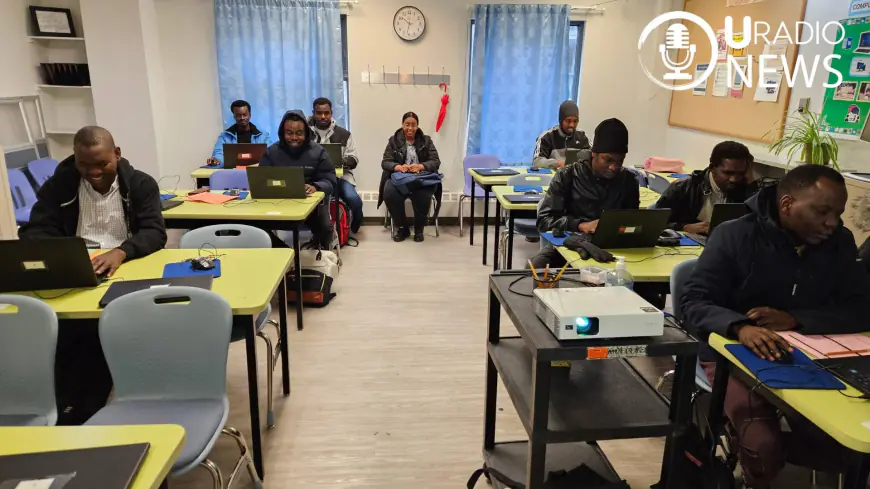The sound of clicking keys echoes around the room. Engaged faces look up from their screens as an instructor walks them through an online job application, digital forms, and how to attach links and attachments to an email.
Despite the growing demand for computer services, with a waitlist of over 200 applicants, funding challenges continue to threaten the sustainability of Altered Minds’ work.
Before the pandemic, Altered Minds was renowned for its Entry Program, a four-week orientation that supported over 5,000 newcomers annually to life in Manitoba. However, core federal funding was lost during the pandemic, and the organization dramatically downsized. Despite these funding cuts, the organization shifted its focus to its Computers for Life program to provide essential computer literacy support for newcomers, seniors, youth, and low-income individuals.
The initial launch in 2019 included just two classes per month. Today, it offers ten monthly classes and reaches remote and rural communities, including Indigenous seniors in Morris.
Securing funding continues to be the biggest challenge Altered Minds faces, explains Executive Director Yulia Savchuk. Computers for Life operates on funding secured through diverse sources, including contributions from the Winnipeg Foundation, CIBC, and New Horizons for Seniors. However, Savchuk warns, “This program can exist only till March 31, 2025. April 1, we can either stop the program or continue if there’s funding available.”
Asking for a cost to attend the program is not an option, exclaims Savchuk, with many of the clients who attend these programs coming from marginalized communities, and many are low-income. She states additional barriers will prevent clients from obtaining the necessary tools to navigate a digital world.
“They become more vulnerable, and more fraud is happening. They’re not able to apply for jobs, and the unemployment rate might grow because of that. It’s a non-inclusive economy. We really want to build an inclusive economy where everybody’s voice is heard.”
Many volunteers who work as interpreters or lead Altered Minds’ programming can attest to the success of these programs, having been clients and students themselves. Mahamat Tahir Ousmane volunteered with Altered Minds as an Arabic interpreter in the Computers For Life classes. He says he learned a lot, and seeing how some of his classmates struggled with English, he wanted to get involved to support them in their learning, knowing how vital these skills are.
“Today, having a computer or knowing how to deal with computers is an important skill. A lot of newcomers, a lot of people, are coming and registering with the Altered Minds organization, and they didn’t know how to use a computer before.”
Ousmane explains the benefits of these programs are multifaceted. Not only are they learning about the basics of computers and navigating the Internet, but they’re learning English while building relationships and community. “I recommend a lot of newcomers. I am very close to them, and they’re still calling me to get them set up with this program.”
Despite ongoing challenges, Altered Minds remains committed to adapting its programs to meet the unique needs of a diverse clientele. Savchuk notes digital literacy is not a luxury but a necessity, and they require continued support from volunteers, donors, and partners to maintain their ongoing services.
– Ryan Funk, U Multicultural















































































































